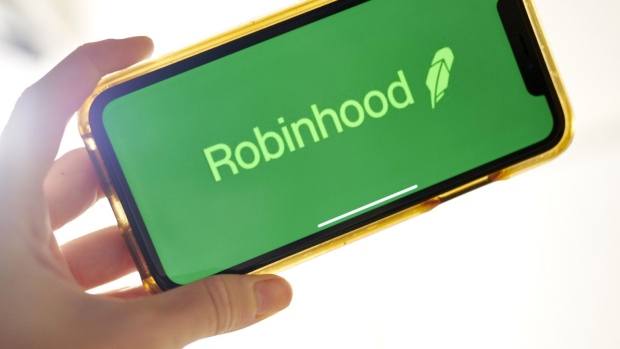Nov 17, 2020
Robinhood seeks advisors for potential 2021 IPO
, Bloomberg News

Robinhood Markets, the trading platform that’s proved popular with novice investors, has asked banks to pitch for roles in an initial public offering, according to people with knowledge of the matter.
The company is aiming to go public as soon as the first quarter of 2021, said the people, who asked not to be identified because the information is private.
The company’s plans could change and it might decide not to pursue an IPO, the people said.
A representative for Robinhood declined to comment.
Robinhood raised an additional $460 million in a series G funding round, lifting its valuation to US$11.7 billion, the company said in September. Robinhood’s investors include Sequoia, DST Global, Ribbit Capital, Andreessen Horowitz, Index Ventures. and D1 Capital Partners.
An IPO would follow a huge boom in volume on the platform, with stay-at-home orders during the coronavirus pandemic driving up retail trading. Robinhood has also tapped into a new demographic -- millennial and Gen-Z traders. Robinhood has 13 million accounts on its platform, which allows for trading in options, gold and cryptocurrencies as well as equities and funds.
Larry Tabb, head of market structure research for Bloomberg Intelligence, said in a note that Robinhood’s targeting of millennials and its business model will increasingly draw the attention of other brokers.
“Yet competing versus Robinhood will be difficult,” Tabb said.
Founded by two Stanford University graduates, Robinhood declares on its website that it is “on a mission to democratize finance for all.” The company has experienced some growing pains.
In the first half of this year, U.S. consumer protection agencies received more than 400 complaints about Robinhood -- roughly four times more than competitors such as the brokerage units of Charles Schwab Corp. and Fidelity Investments. The grievances, obtained via a public records request to the Federal Trade Commission, depict novice investors in over their heads, struggling to understand why they’ve lost money on stock options or had shares liquidated to pay off margin loans.
Almost 2,000 accounts on its platform were compromised in a hacking spree last month and 10,000 accounts were held hostage.








